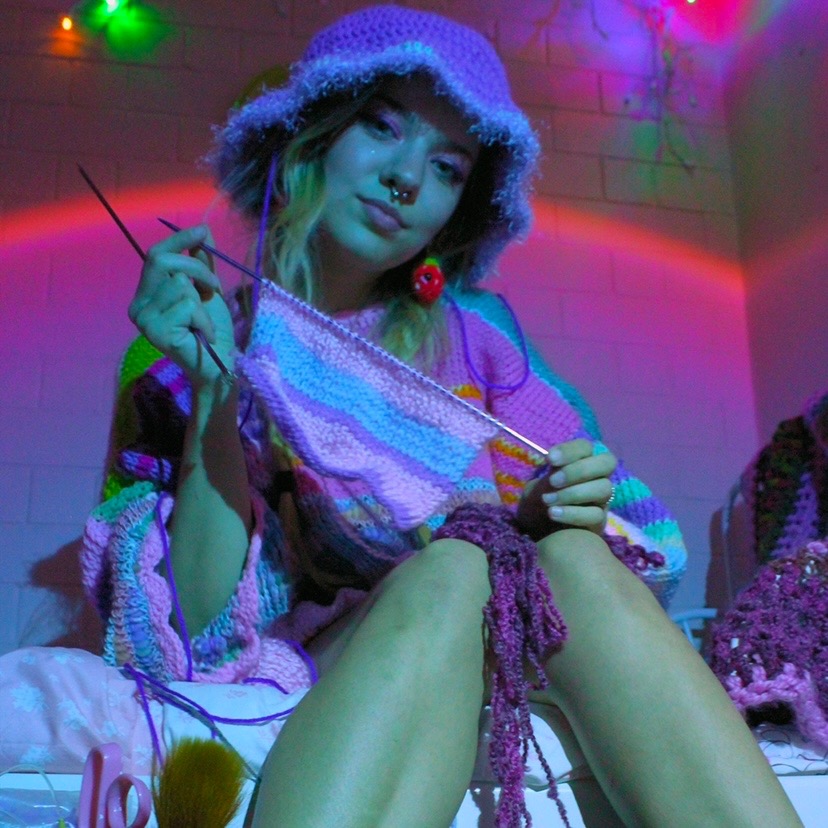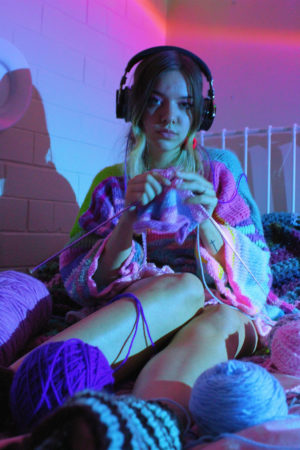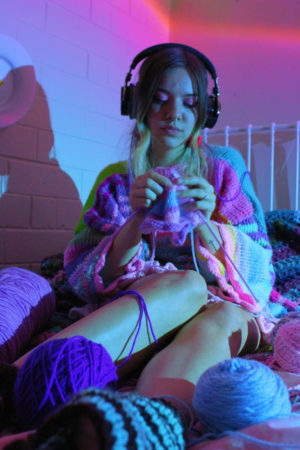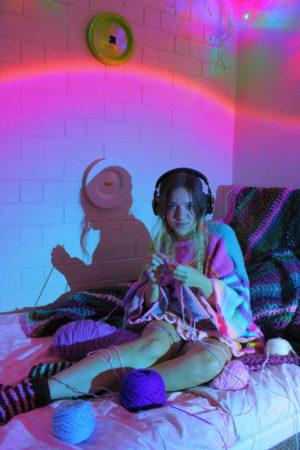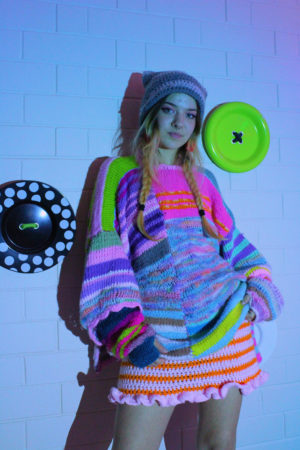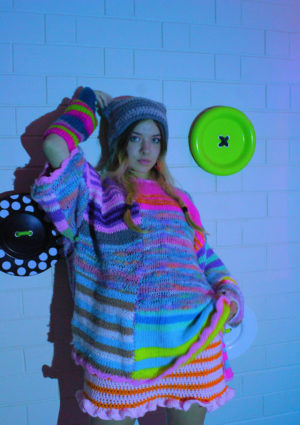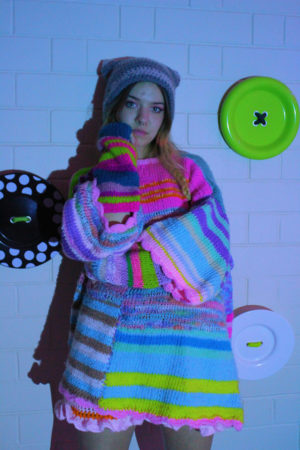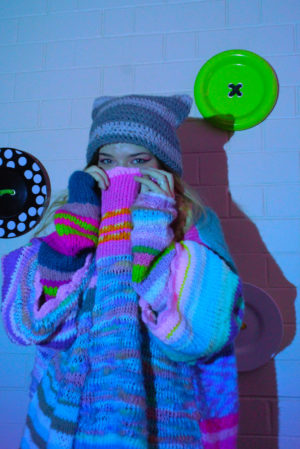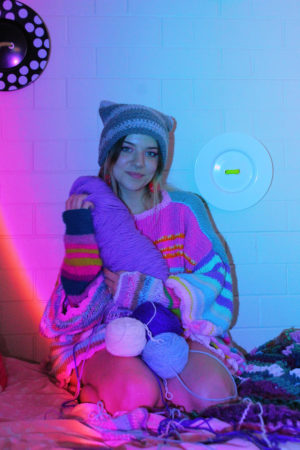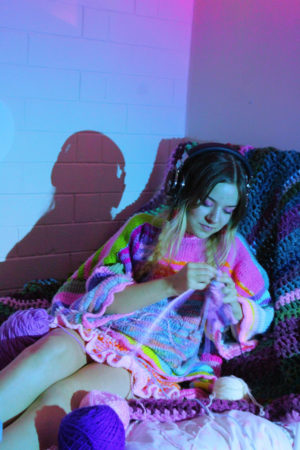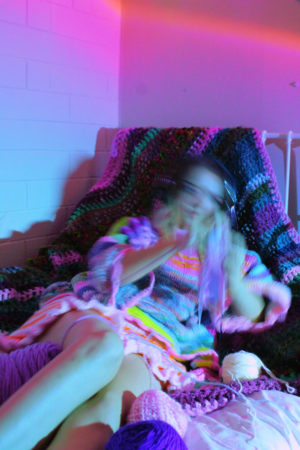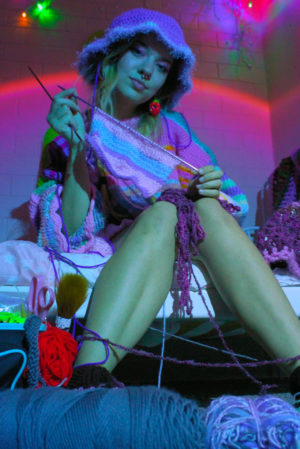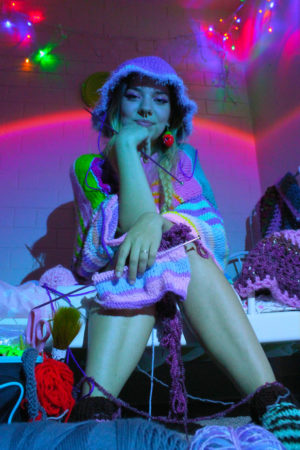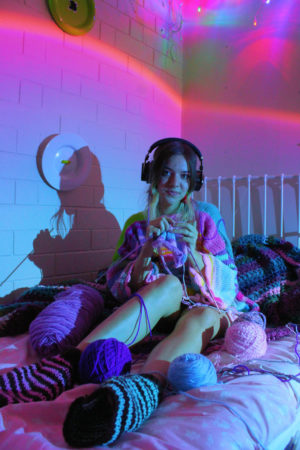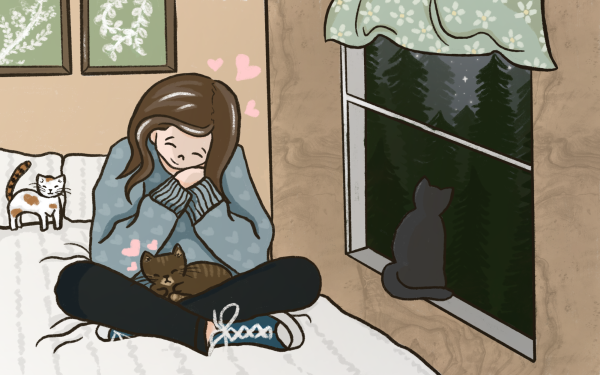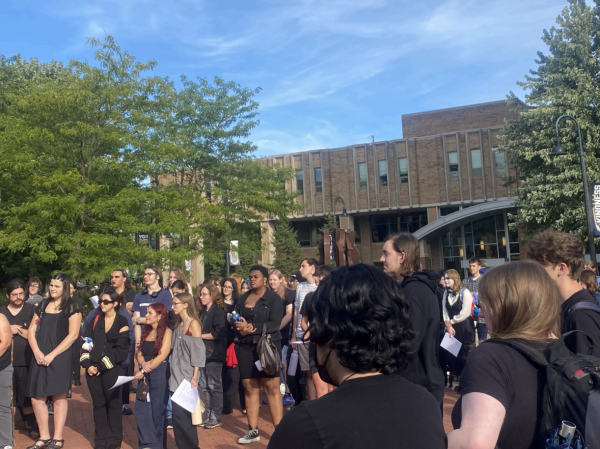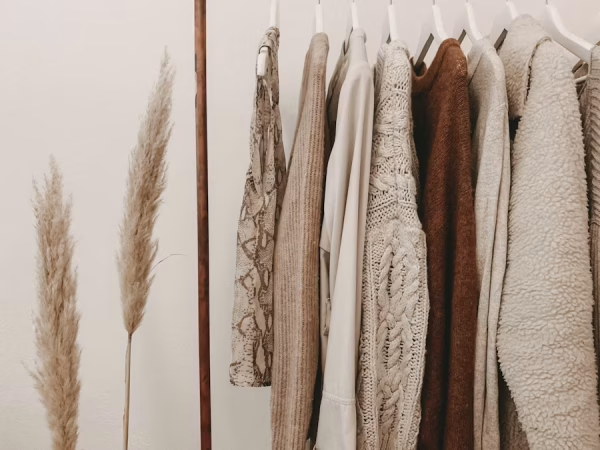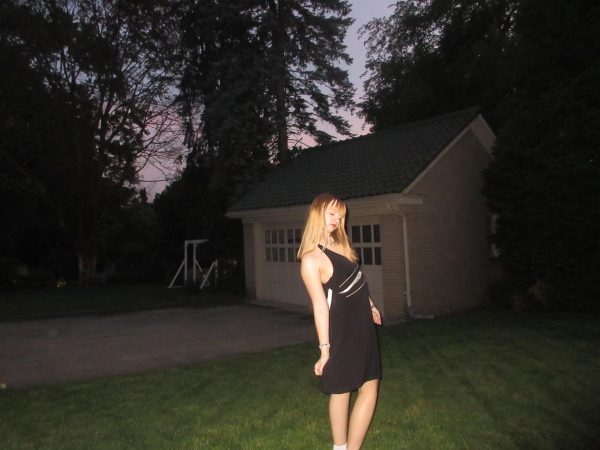coping through crochet
Breathe in. Loop through. Breathe out. With each yarn chain that your nimble hands create, you can envision threading your pent-up energy into the cozy hat, warm socks or cuddly stuffy that is about to result from your meticulous work.
Since quarantine has hit us hard from 2020 on, we have all felt the looming anxiety in the air. Our forced alone time has also given us reason to pick up hobbies that we may never have considered before. With handmade fashion trends booming during our newfound sedentary lifestyles, many of us have turned to the once “grandma” activity of crocheting. Not only does this hobby produce wonderful handcrafted creations, but it is also one of many wonderful tactile-based coping mechanisms for those who suffer from anxiety. In this pandemic-struck world, many people are turning to crochet as a stress reliever.
COVID-19 has worsened anxiety for people all across the globe. The added stressors and triggers of contracting symptoms, the worry for family members and loved ones who are at high risk and the general shift of day-to-day activities to the virtual space have caused a significant rise in anxiety and depression disorders. In fact, these conditions have seen a 25% increase, according to the World Health Organization.
Additional stress and the inclination to relieve that stress through grounding and sensory-based coping have perfectly aligned with the intensifying pushback against the fast fashion production that has caused a surge in handmade clothing items. These emerging trends have allowed crocheting to quickly become the trendiest pastime of choice for Gen-Z, but the hobby itself has many more mental health benefits than one might think.
Anxiety disorders often present themselves through physical symptoms that can be felt within the body. These may include sweaty palms, shakiness, nausea, fast or irregular heartbeat and shortness of breath. Due to the largely physical reactions to anxiety along with the racing thoughts that accompany that anxious feeling, it is common for those with the condition to cope through sensory-based activities.
Anxiety often can be combated through these activities because they ground the body in its physical space. Grounding is a technique used by many therapists whose patients suffer from anxiety and PTSD. The practice is especially useful during panic attacks and other anxiety-producing situations, as many times these occurrences cause catastrophizing thoughts that tend to make a person feel as though they are straying away from their physical reality. You may hear phrases to this effect, such as “getting lost in your own head,” or feeling as though “you cannot escape your thoughts.”
These emotions can actually be obstructed by using the five senses to reconnect with your physical space and focus more on tangible surroundings rather than catastrophizing thoughts. Crocheting is the perfect mix of sensory touch and intentional movement, which will allow you to relieve feelings of stress.
Crocheting can also help you to convert manifestations of anxious energy—such as fidgeting with your hands—into focused and intentional movements. By redirecting yourself into a process of creating art through crochet, you can take seemingly uncontrollable movements and turn them into something positive.
Focusing on a task such as crocheting can help to be externally expressive, rather than ruminating internally on thoughts that are negative and inhibitory. As you crochet, you can feel the fibrous yarn between each of your fingers and the cool metal hook that threads in and out of your creation, grounding you in your physical space, and bringing you back to reality.
Turn your worries into granny squares—it will make you feel better.
Support Student Media
Hi! I’m Catie Pusateri, A Magazine’s editor-in-chief. My staff and I are committed to bringing you the most important and entertaining news from the realms of fashion, beauty and culture. We are full-time students and hard-working journalists. While we get support from the student media fee and earned revenue such as advertising, both of those continue to decline. Your generous gift of any amount will help enhance our student experience as we grow into working professionals. Please go here to donate to A Magazine.

